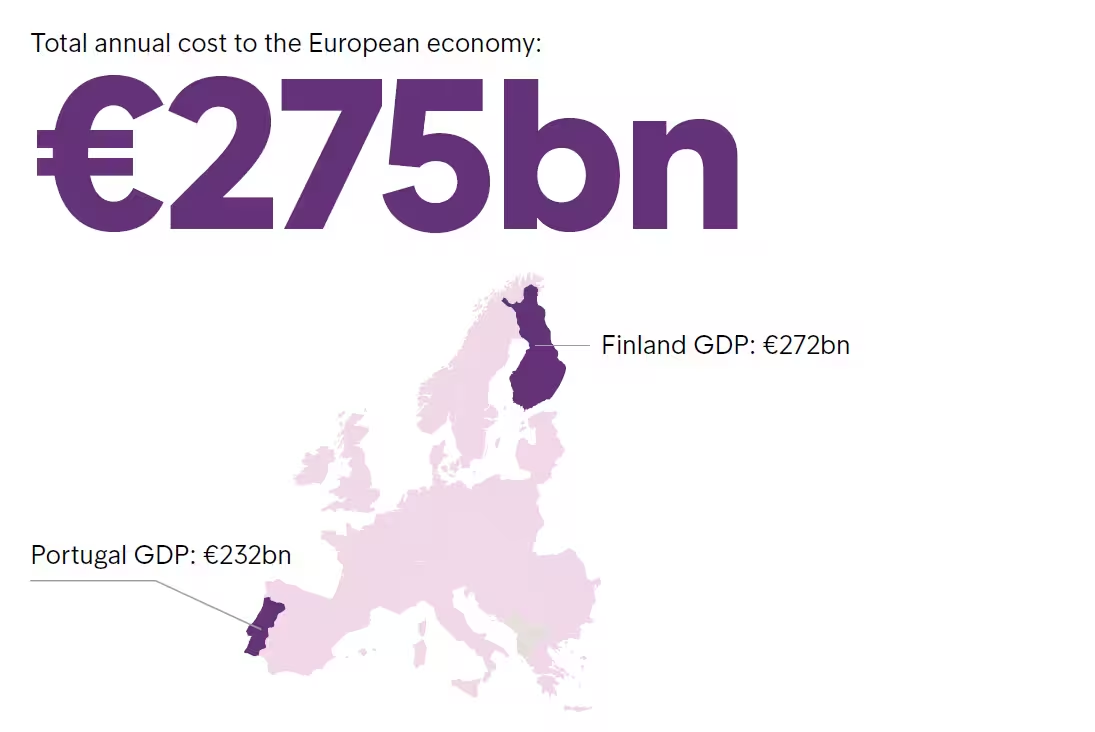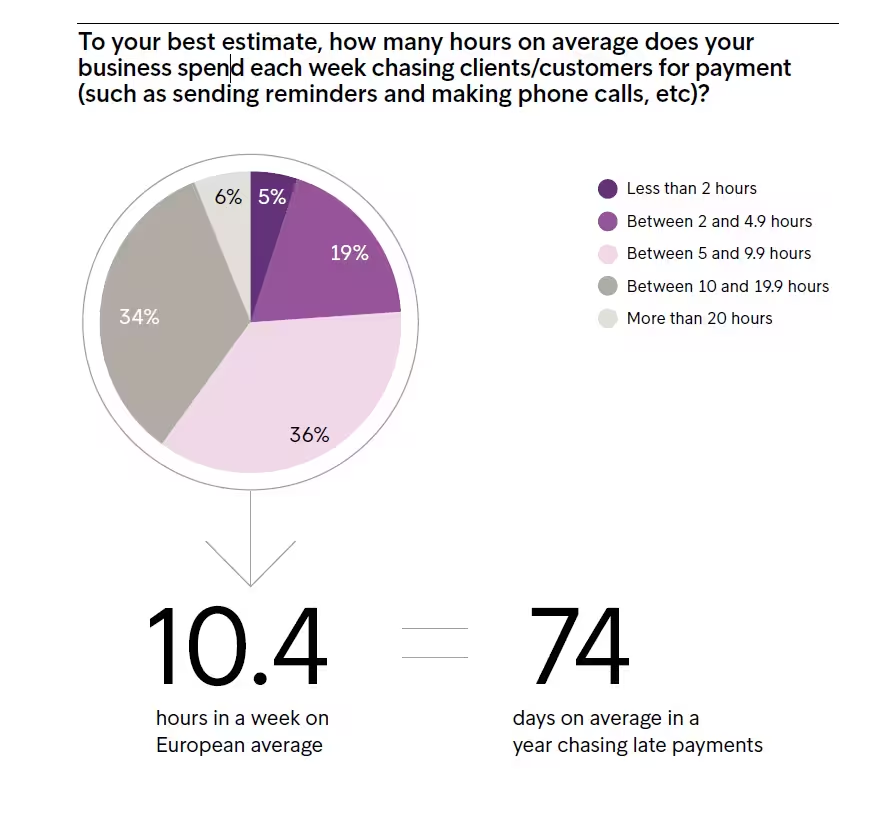
01.06.2023
Europe's €275bn problem
The time that businesses spend chasing late invoices and negotiating payment terms soon adds up. According to our 2023 survey data, the average European business spends around 10-and-a-half hours each week chasing customers for payment. This is costing Europe a quarter of a trillion euros a year.
Chasing late payments is costing Europe a quarter of a trillion euros a year
The result is higher costs – and at the worst possible time given the other pressures on European businesses. The scale of the problem is also far larger than is often realised.

According to our 2023 survey, the average business spends an average of 10-and-a-half hours each week chasing customers over late payments – the equivalent of around 74 days a year. Using the average salary per country provided by the OECD, we can work out a rough estimate that this translates into a total annual cost to the European economy of EUR 275bn. In comparison, Finland has a GDP of approximately EUR 272bn while Portugal’s GDP is around EUR 232bn, according to the most recent data from the World Bank.

Lost days quickly adds up
Costs like these are unsustainable and are preventing investment in initiatives that could create a stronger, more sustainable economy. Two-thirds of businesses (65 per cent) say that if clients and customers paid them more quickly, they would be able to pay their own suppliers with greater speed.
At the same time, 61 per cent say getting paid more quickly could help them to prioritise sustainability performance, and 46 per cent say it might allow them to expand their workforces.
Harder to agree on mutually beneficial terms with customers
With customers paying late and demanding more lenient payment terms, businesses are dedicating more resources to securing revenue.
More than half of European firms (53 per cent) say they are finding it increasingly difficult to reach agreement with customers on terms that are mutually beneficial, leading to protracted negotiations. The same proportion complain that customers are asking them to postpone their issuance of invoices.

Want to explore more?
Published in May 2023, The European Payment Report provides into the payment behaviours of European businesses and examines trends related to late payments, invoice payment practices, and overall financial risk.